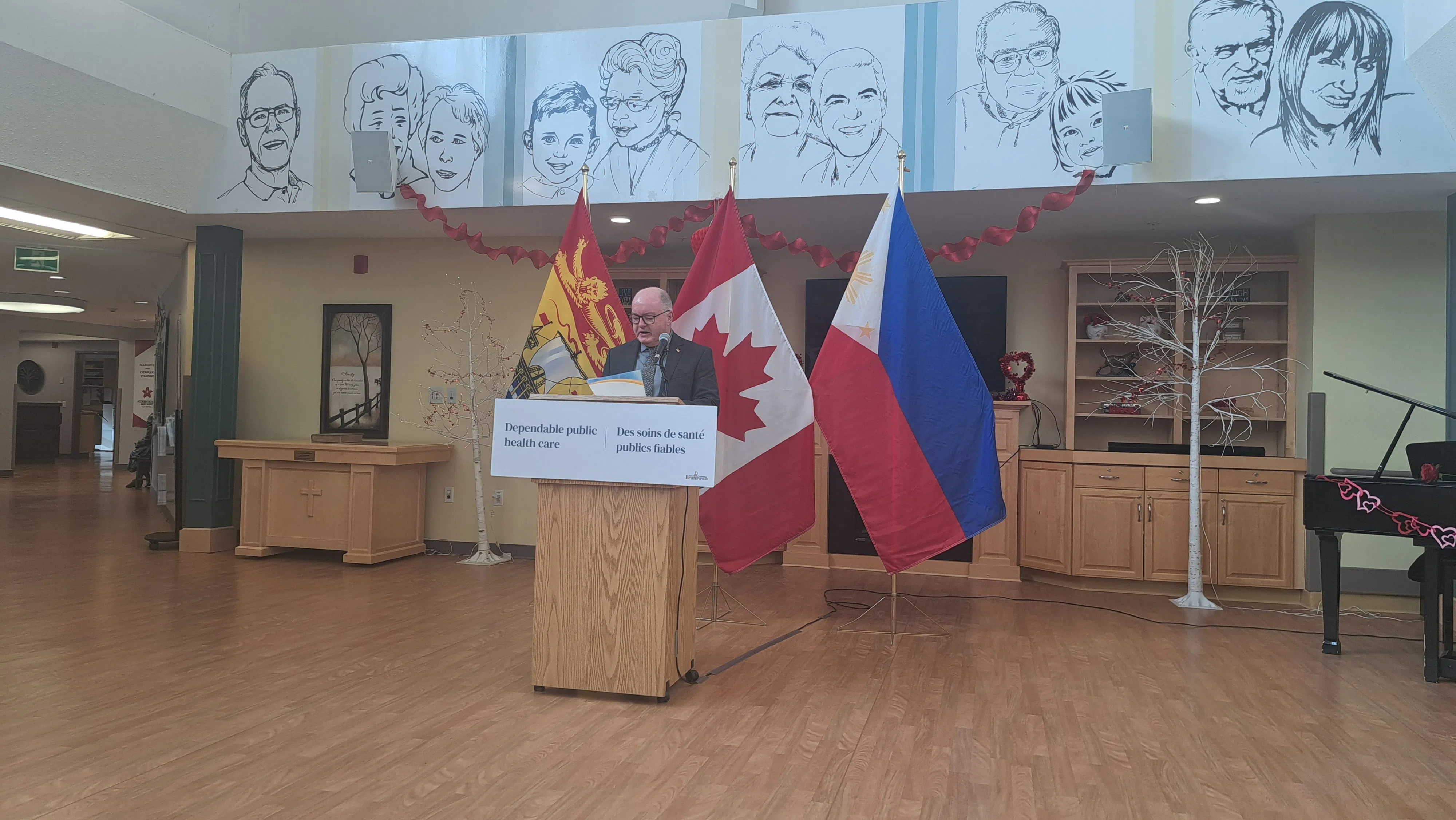Health Minister Bruce Fitch welcomed several internationally educated nurses during a visit to Loch Lomond Villa in Saint John on Tuesday..
Fitch said it was an opportunity to celebrate the nurses who have made New Brunswick their home and emphasize that recruiting nurses remains a key priority for the government.
“We are committed to growing our health-care workforce to ensure New Brunswickers have access to quality care, and hiring internationally educated nurses is a concrete step on that path,” said Fitch.
“I have had the pleasure of meeting some internationally educated nurses from a recruitment mission in the Philippines which resulted in over 180 accepted job offers.”
Since 2021, more than 500 internationally educated nurses have been recruited to work in the province as registered nurses, licensed practical nurses or health-care aides. More than 200 of them are already employed in the province, with others working their way through the immigration process.
The Department of Health said it regularly attends and organizes recruitment events nationwide in collaboration with its health sector partners.
Internationally educated nurses must meet the requirements of the Nurses Association of New Brunswick to work as registered nurses in the province.
“Our government has placed significant focus on the recruitment of internationally educated nurses ever since our Nursing Resource Strategy identified it as a key action item,” said Post-Secondary Education, Training and Labour Minister Arlene Dunn.
“This focus has resulted in an incredible boost to human resources in our health system and we are thankful for the nurses who are choosing to come here and are making such a positive impact in the lives of New Brunswickers.”
The process to become licensed to work in New Brunswick has been expedited for nurses trained in 14 countries. Before becoming licensed, these nurses can work for regional health authorities or nursing homes in support positions, such as personal support workers.
“Nurses play a vital role in both our health-care and long-term care networks,” said Social Development Minister Jill Green. “I am pleased these internationally educated nurses are choosing to call New Brunswick home. Together we will be able to ensure all New Brunswickers have access to the right care at the right time.”
Employers not in the health-care field who want to learn more about hiring internationally educated nurses or supporting existing employees should contact WorkingNB online, by phone, or by visiting one of its 19 offices across the province.
Internationally educated nurses and other health-care professionals interested in working in New Brunswick can find more information online.








